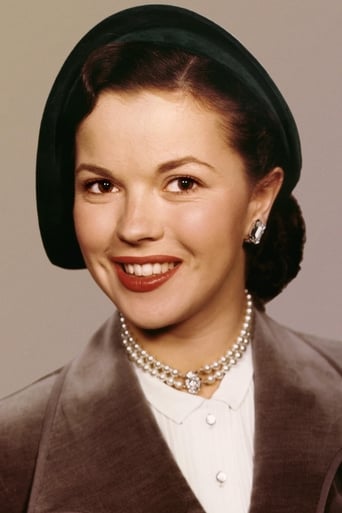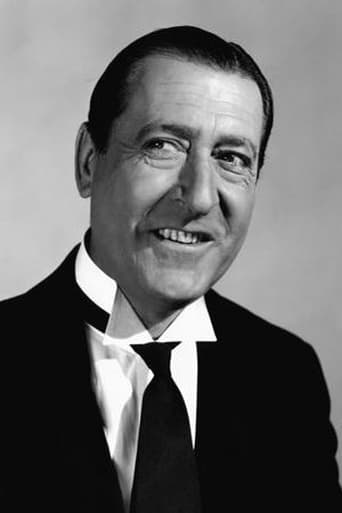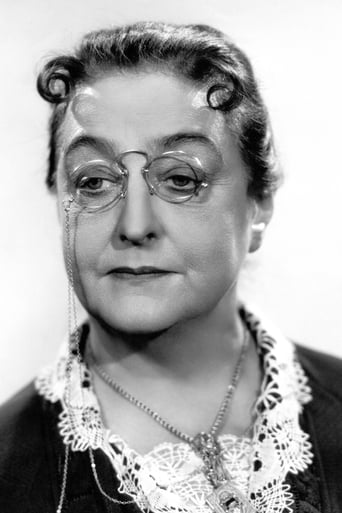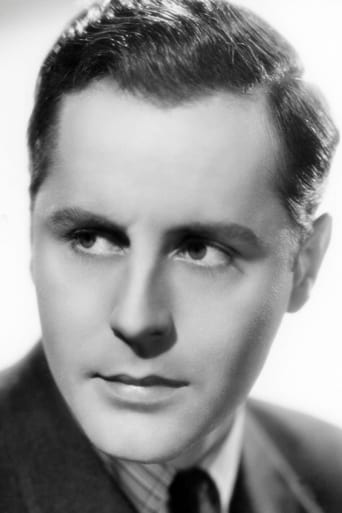Kattiera Nana
I think this is a new genre that they're all sort of working their way through it and haven't got all the kinks worked out yet but it's a genre that works for me.
Derrick Gibbons
An old-fashioned movie made with new-fashioned finesse.
Kayden
This is a dark and sometimes deeply uncomfortable drama
TheLittleSongbird
Heidi as a book was a childhood favourite and still is a timeless classic. This version with Shirley Temple was also a favourite as a child and is still a delight, whether you've read the book or not. It is true that it is not the truest to the book, with some darker elements that didn't feel shoe-horned and far from traumatising, but that really doesn't matter, you can still love the book and also love the film. There could have been more of the relationship between Heidi and her grandfather(but it is still really touching) and the musical number In Our Little Wooden Shoes while catchy, well-staged and cute didn't add a whole lot to the story, in fact really it was irrelevant. Everything else is fine, and I found it superior to the 1993 Noley Thornton version(which was still good), it doesn't feel over-dramatic even with the added darker parts, the characters are far more truthfully and sympathetically written with much more of a character journey with the grandfather and there's more heart. Heidi is a lovely film to look at, being crisply and lovingly filmed, scenery that makes you wish you were right there and the costumes give a genuine sense of time and place(they look good too, yes even Heidi's poor clothes). The music is whimsical and sparkling, the dialogue has a very good balance of funny and meaningful and the story essentially has every bit the charm, heart-warming sentiment and emotion that the book has, the ending is well and truly sweet and not tacky. The sled chase, any scene with Fraulein Rottenmeier and the monkey are standout scenes. Heidi is briskly directed with enough time for the story to resonate and for the actors to really go for it. Jean Hersholt plays grumpy and heartfelt beautifully, while reclusive there is a real sense that he cares for Heidi and she for him. Mary Nash is the very meaning of beastly- living aptly up to her character's name- and absolutely relishes it, while Arthur Treacher is hilarious as the butler Andrews and Marcia Mae Jones is an affecting Klara. But it's Shirley Temple's film, she's adorable and while she manages to be charming and have wonderful comic timing she is equally good at displaying an emotional side, her acting in the scene in the police station(another memorable scene) is just heart-breaking. While she is the main attraction of the film, the other characters and actors are just as believable to not make Heidi too much of a Shirley Temple show. All in all, delightful and a Shirley Temple classic, one of her best possibly. 9/10 Bethany Cox
MartinHafer
I am no expert on "Heidi". I know it's a super-famous book and I've seen a few of the movies. But what I do know is that this Twentieth Century-Fox version was FAR from the original tale. It's still entertaining, but it's not "Heidi".The story begins in the German mountains. This is odd, as it was actually supposed to be Switzerland and I wonder why the studio changed this--especially in light of the rising oppression in Nazi Germany. It begins with Heidi's aunt bringing the girl to live with her Grandfather. He has no interest in the child or anyone else, as he long ago disowned his child and became a hermit. But, VERY quickly (much more quickly than it should), Heidi brings out the man's love and humanity and all is well. However, the aunt returns to kidnap the child (not in the original story) and the rest of the tale is set in Frankfurt--where Heidi becomes the companion of a disabled girl. This portion of the story is somewhat like the original, though there was no kidnapping and the housekeeper was NOTHING like the original--and instead of just being stuffy, she's evil and a criminal who eventually tries to sell Heidi to gypsies!!! Again, certainly NOT in the original story. But, in the end, all is finally well and Heidi is returned to her loving grandfather.If you have never read or seen a film based on the original story, the 1937 version is wonderful. As usual, Shirley Temple is great and I can even forgive the totally unnecessary song and dance number inexplicably inserted into the movie. Having watched the 1993 Noley Thornton version which closely follows the story, however, I know that the story can be a lot better. Decent but see the 1993 version instead...or in addition.
rebschucks
The story of Heidi is kind of hard to present to film-goers. As a book it's wonderful and engaging, but it's just not movie material. Thus we get versions like this, with kidnapping and gypsies and an evil witch of a Fraulein Rottenmeier who wants to keep Klara sick and bring Heidi down.But how can you not love Shirley Temple? She just takes any movie and makes it golden! And we also have the heart of the story: a little girl who teaches a grumpy old man to open up his heart again. And those two things by themselves help the movie to shine.A wonderful classic, especially for young viewers, but also good for the young at heart!
MARIO GAUCI
This, along with several other Shirley Temple vehicles, has been an Italian TV perennial for years – particularly over the Christmas period – but I never bothered with it, despite the involvement of director Dwan. Just a couple of weeks ago, it turned up again and I even recorded it – despite being both dubbed and colorized! However, since I managed to find it on DVD, I opted to watch HEIDI 'as intended'. Incidentally, not only have I recently acquired – or watched – a number of the director's later efforts, but I've even watched a later TV adaptation of the Johanna Spyri novel.As it turned out, the film is an utterly professional (and typically handsome) Darryl F. Zanuck production but I think that the story was tailored far too much to suit the ebullient child star's usual formula: not only do we get Arthur Treacher (receiving unwarranted third billing!) as a typically bemused butler, but Temple is made to act as cupid between the new parson and the local schoolmarm; besides, we're treated to a totally irrelevant fantasy song-and-dance number, two separate antagonists in the shape of her aunt and jealous governess – not to mention the apparently requisite corny final close-up! Among the differences I noticed from the 1968 version (which is probably more faithful to the source material) is the fact that Temple befriends the invalid child immediately and even gets to be the one who cures her psychosomatic ailment! Besides, the incidents which climax the later version i.e. Grandfather's religious redemption and Clara's 'cure' itself occur earlier here, whereas the highlight of the film is taken up by a sleigh-chase in the snow with the Police pursuing the hysterical Grandfather! The overly made-up Jean Hersholt is fine as the latter, while the supporting cast also includes Mary Nash as the overbearing Governess, Sidney Blackmer as Clara's father (whose role is much reduced here) and Sig Rumann in a bit part as a police official. All in all, then, I found the 1968 TV adaptation to be the superior effort.






